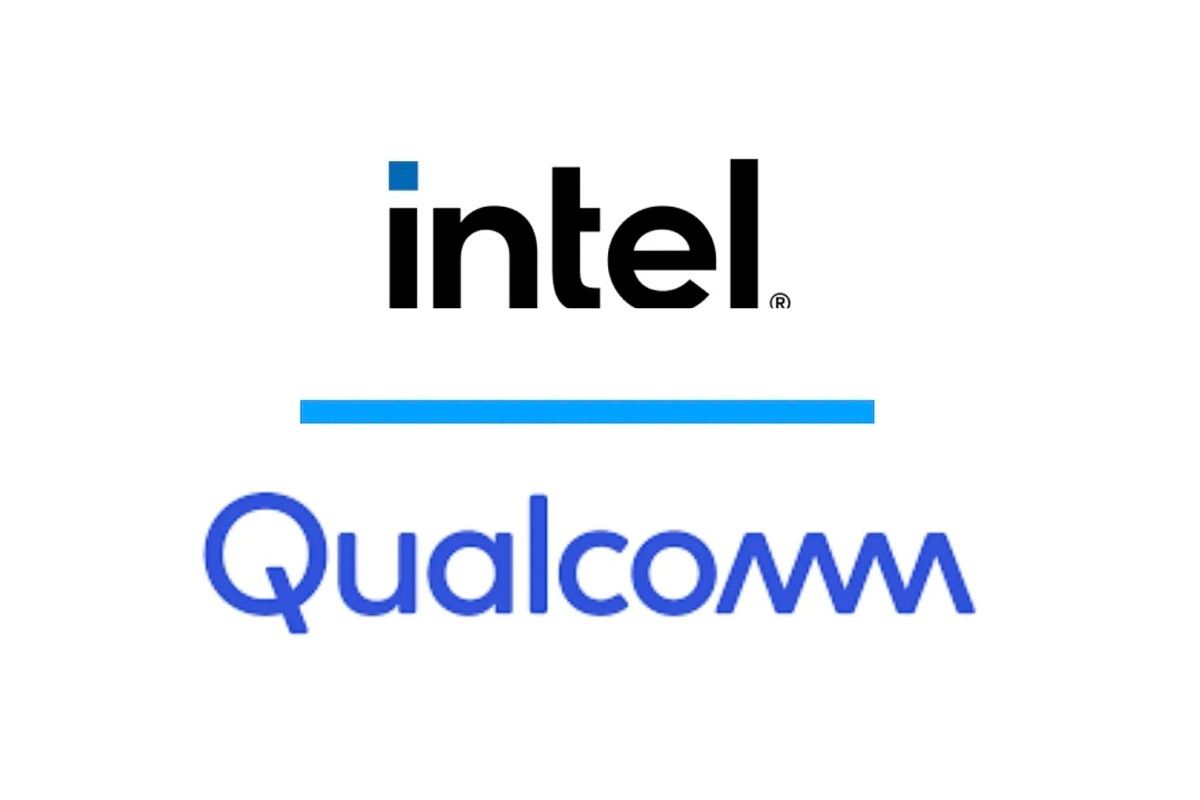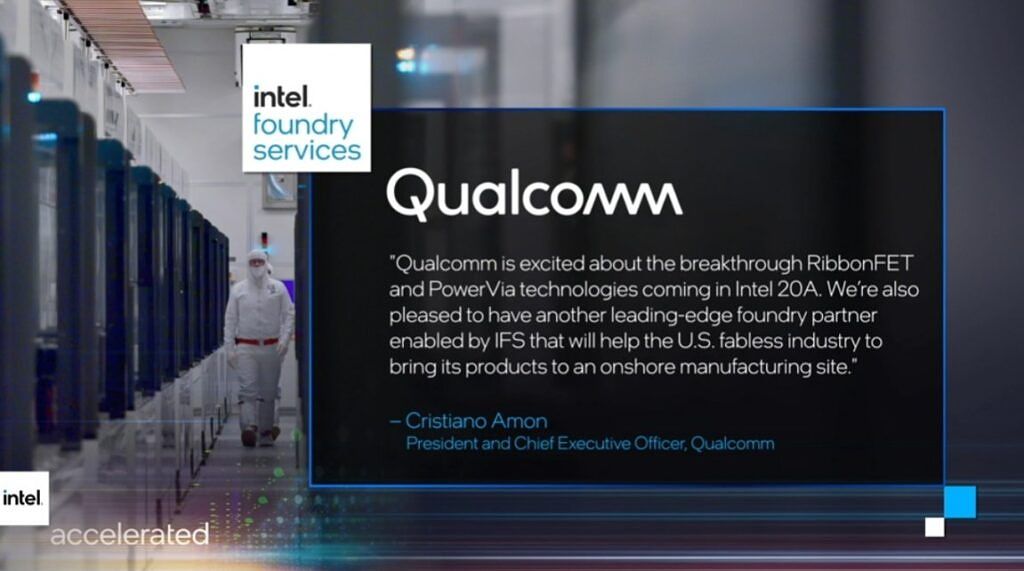Next year, Qualcomm is set to introduce a new custom ARM architecture that's going to compete with Intel's processors. But a couple of years later than that, Intel might be building Qualcomm's chips. Today, Intel laid out its roadmap through 2025, renaming its process nodes and showing what each generation will look like. One of those, called Intel 20A, is something that Qualcomm is going to make use of.
Intel 20A is promised to be revolutionary. The firm says that it will bring us into the angstrom era, so process nodes are going to be measured in angstroms, rather than nanometers (an angstrom is a tenth of a nanometer). It's going to be about 20 angstroms at first, so these are going to be smaller process nodes than we've ever seen before, and it should arrive in 2024. Intel 20A also promises an all-new transistor architecture, using the new RibbonFet technology, along with the new PowerVia backside power delivery network.
The move might seem surprising, given that Qualcomm and Intel are such staunch competitors. Indeed, it appears that in many areas, Qualcomm is either winning or gaining ground. Intel attempted to make mobile chips and failed, and later, it had to give up its attempts at making 5G modems for smartphones. In the PC space, Windows on ARM hasn't really taken off, but with Qualcomm's acquisition of NUVIA, it has big things planned.
However, it's not as surprising as you'd think. Rivals partner with each other all the time, even if the divisions partnering aren't necessarily competitors. In the heated days of Apple iPhone vs Samsung Galaxy, Samsung used to manufacture Apple's custom ARM processors. We've seen Qualcomm partner with Samsung on its Snapdragon chips in recent years, so partnering with Intel is logical if Intel indeed has the better technology.
And one of the key things that new Intel CEO Pat Gelsinger set out to do was to build out the firm's foundry business. Indeed, this is a deal that works out for everyone involved.
Other than that Qualcomm will be using Intel 20A, there really weren't any other details provided. Obviously, we'll find out more between now and 2024.
It would seem that at best, Intel's boasts about Qualcomm as a foundry customer are premature. Qualcomm's President and CEO Cristiano Amon was asked about the deal and said the following, according to SemiAnalysis:
Thanks for the question. Look, it's actually very simple. Qualcomm, we're probably one of the few companies that, given our scale, is able to have multi-sourcing at the leading node. We have two strategic partners today, which is TSMC and Samsung.
And we're very excited and happy about Intel deciding to become a foundry and investing in leading node technology to become a foundry. I think that's great news for the United States fabless industry. We are engaged. We are evaluating their technology.
We don't yet have a specific product plan at this point, but we're pretty excited about Intel entering the space. I think we all determined that semiconductors are important and resilient supply chain is only going to benefit our business.
So, as for whether or not Intel will actually be building Qualcomm chips on the 20A node in 2025, the answer is maybe. And if it does happen, it's not something that's set in silicon right now.
That's not entirely surprising either. Intel's 10nm nodes were supposed to ship years before they actually did, getting delayed time and time again. It's 7nm process is already delayed as well. If Qualcomm had actually tied itself to Intel's promise of a 2nm (or 20 angstrom) node in 2025, that would be more surprising.


